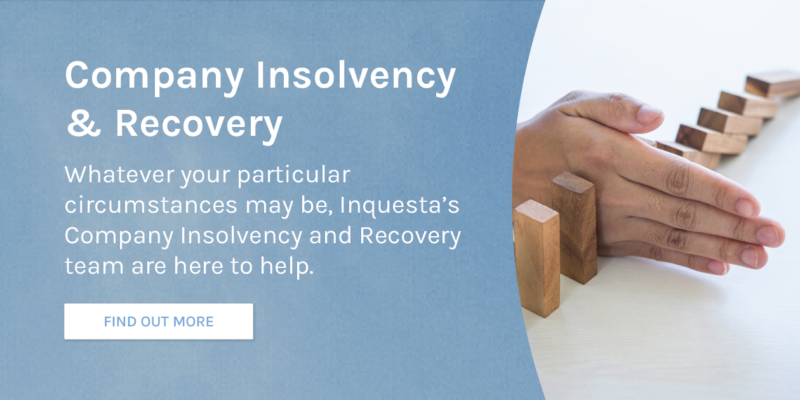Have you ever found yourself wondering, does TUPE apply in administration scenarios? Are you unsure about how the regulations might impact your responsibilities throughout the process? If these questions resonate in any way, you’re in the right place. Navigating the complexities of administration is a challenging time for any company director, and the added complexities of key obligations like TUPE can make things even more difficult to comprehend.
Join us as we delve into the intricacies of TUPE in administration, exploring when and how the regulations will apply. We’ll provide you with insights, guidance, as well as some key factors you’ll need to keep in mind if you want to navigate TUPE in administration with confidence, ensuring compliance and protecting both your business and your employees’ rights in the process.
Read on to discover some essential answers to your Transfer of Undertaking (Protection of Employment), also known as TUPE administration questions and gain a much clearer understanding of this crucial, often overlooked, aspect of the business administration process.
When Does Tupe Apply?
TUPE is a crucial piece of legislation that acts to protect employees’ rights when the business they work for is either changing ownership or undergoing significant changes. Gaining a keen understanding of when TUPE applies is essential for directors and employers to ensure compliance, while also protecting the interests of both the firm itself and its workers during the transition.
TUPE applies in a number of situations, the two most prominent of which being:
- Business Transfers: When a business, or part of it (like a branch or division), moves from one owner to another, TUPE applies. In this context, TUPE protects employees’ jobs and the terms of their employment.
- Service Provision Changes: If an employer outsources, insources, or changes service providers, but the service itself continues, TUPE can apply. This ensures that the employees in question can transfer to the new provider without losing their jobs or seeing significant changes in their existing terms.
 Does TUPE Apply in Administration?
Does TUPE Apply in Administration?
TUPE is most often associated with business transfers. However, it can also apply in administration scenarios. The application of TUPE in administration will depend on the exact nature of the administration and whether there is a transfer of the business or its assets.
Here’s a closer look at when TUPE may apply in the context of administration:
TUPE and Administration Business Transfers
If a business, or a segment of the business, is sold as part of the administration process, TUPE regulations can apply. This ensures that the contracts of the relevant members of staff can transfer over to the buyer, as well as any existing employment rights and terms.
TUPE and Administration Asset Sales
Company assets may be sold during administration without a transfer of the business as a going concern. In scenarios such as this, while TUPE regulations may not apply to the sale of the asset alone, they can still be relevant.
If a sold asset has any employees associated with it, they may find themselves also being transferred to the buyer. This transition would likely fall under the remit of TUPE. Examples of assets that could have employees attached include specialised equipment and proprietary systems and software.
TUPE and Pre-Pack Administration
Pre-pack administration is the process of coming to an agreement to sell a business before the formal appointment of an administrator has taken place. As part of this operation, any employees ‘caught up’ in this scenario that have their contracts transferred to the new owner will be protected.
Proper consultation and adherence to TUPE requirements are essential and non-negotiable parts of the pre-pack process. This is vital to ensure compliance while protecting employees’ rights at all times.
Tupe and Administration: Key Factors to Keep In Mind for Company Directors
Navigating TUPE considerations during administration can add an additional layer of complexity to an already complicated and stressful process for company directors. Here are a few key factors to keep in mind:
- Notify Immediately: During the administration process, you can’t’ afford to leave things until later. Inform any and all affected employees as soon as possible about what’s going on and how it might impact their jobs and the terms of their employment.
- Conduct Consultation: Proper consultation with the affected employees or their representatives is crucial. The timing and details of this consultation may differ, but early and meaningful consultation is required under TUPE regulations.
- Maintain Communication: It’s important to keep lines of communication with all relevant parties open at all times. This includes employees, stakeholders, and prospective buyers. Clear communication can mitigate potential anxiety and the spreading of false rumours during the process.
- Inform New Owners of Obligations: As director it’s key that you ensure that any potential buyers (or an insolvency practitioner if it comes to that) are aware of their TUPE obligations should they take over. This can include inherited historical TUPE liabilities.
- There Could be Exemptions: Some TUPE obligations can be relaxed in an insolvency situation. However, this is on a case-by-case and obligation-by-obligation basis and should never be considered a given. Seek legal advice if you wish to know more about understanding exemptions to TUPE.
- Seek Legal Advice: As mentioned above, TUPE and administration can be highly intricate with a number of potential legal pitfalls. Therefore, it’s advisable to consult with a legal professional with experience with both TUPE and administrations to ensure compliance and ensure company and director interests are protected.
Understanding your TUPE obligations during administration is crucial to ensuring compliance, protecting the best interests of employees, and managing your potential liabilities as a company director.
Inquesta: Administration Support to Help You Navigate the Common Pitfalls
Navigating the administration process is undeniably one of the most challenging experiences a company director can go through. Beyond the many financial intricacies and high-pressure decisions involved, the emotional toll it can take on all parties involved, including the firm’s employees, should not be overlooked. Add to this the complexity of legislations such as TUPE, and the pressure can become overwhelming.
Understanding this human element, the fears and uncertainties of your employees, as well as the maze of legal requirements expected of you is vital. After all, business recovery isn’t solely about protecting the company and its directors but also safeguarding the livelihoods and futures of those who have been with you on your firm’s journey.
At Inquesta, we appreciate the full spectrum of the challenges administration presents. We understand the weight and pressures it can place on directors. Do you foresee administration, or another form of company recovery, on the horizon for your business? Don’t traverse this journey alone. Trust in the expertise and experience of our team to help guide you through this complex process with clarity, confidence, and care.
Reach out to Inquesta today and ensure that you have the support and guidance you need throughout these challenging times.


